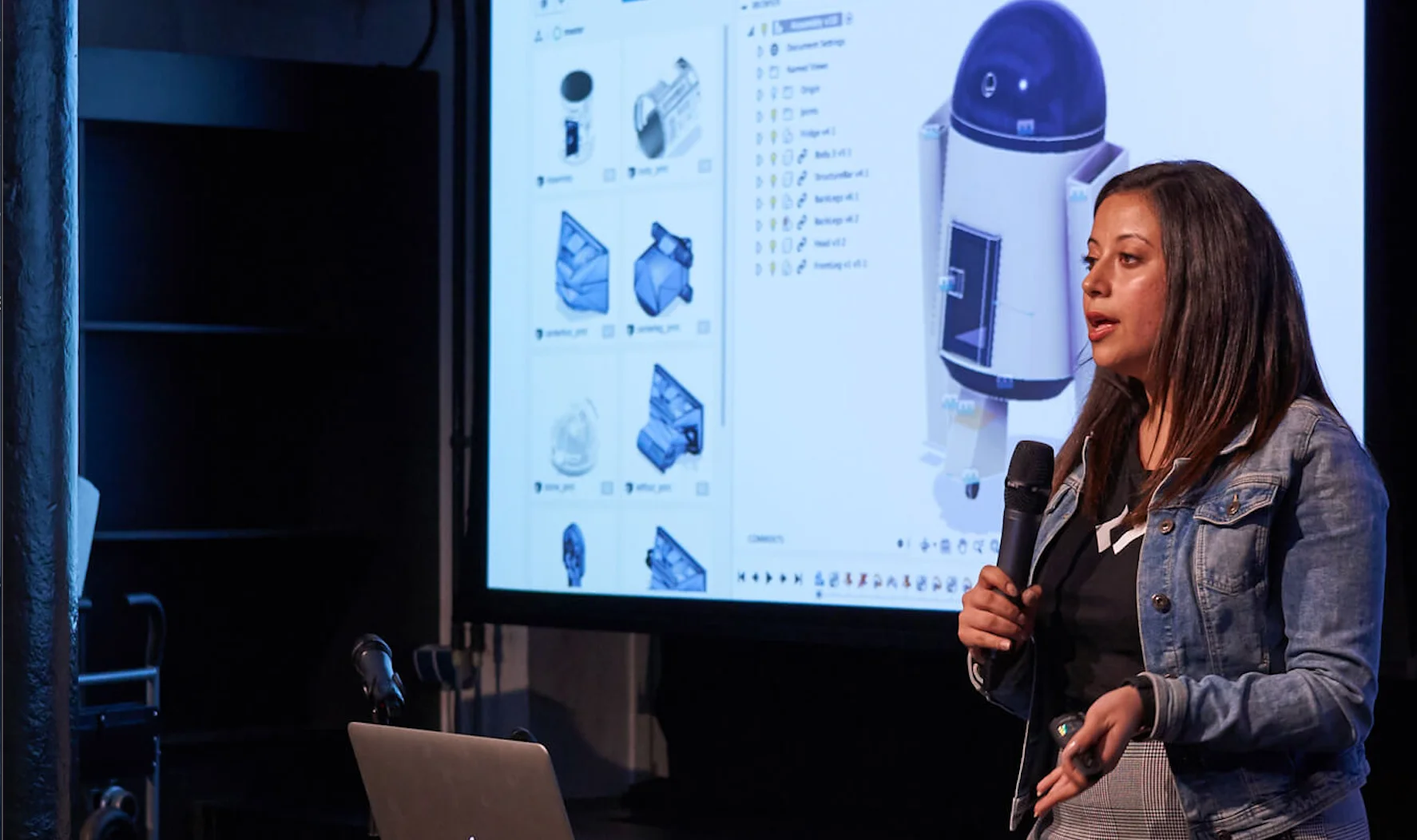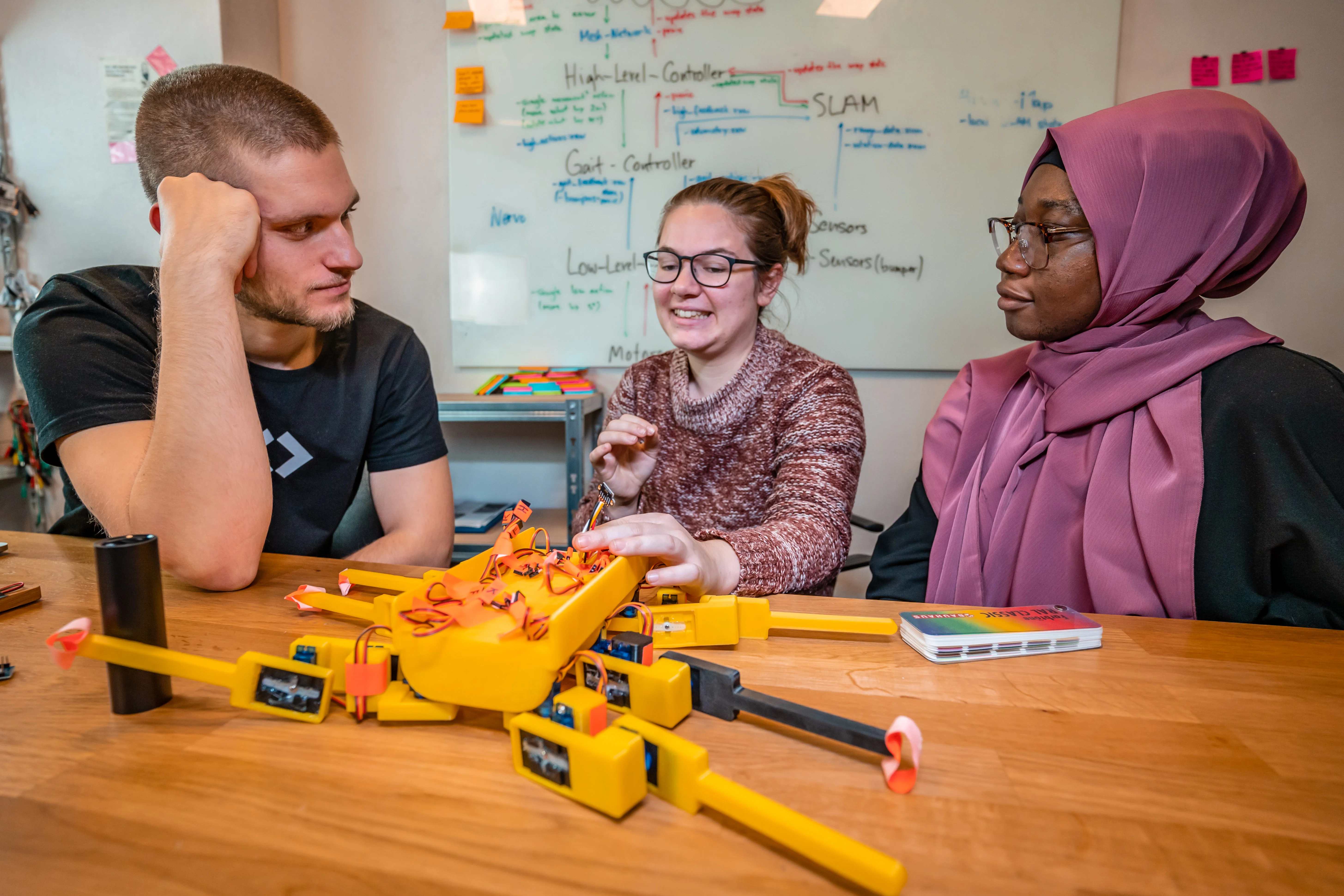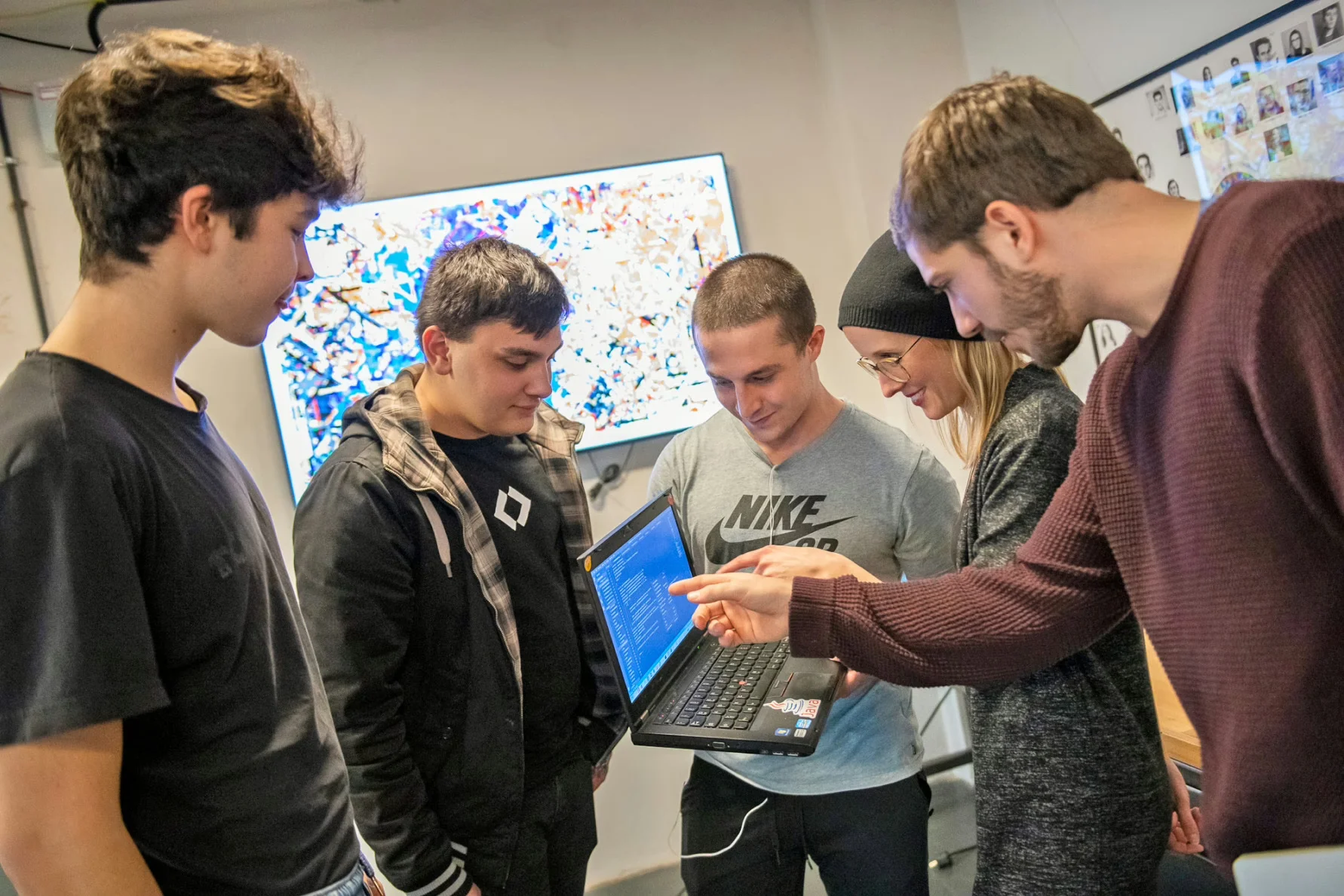Software Engineering (B. Sc.)
Engineers build the digital world we live in. Find out how to solve complex problems and innovate by designing robust software systems in our Bachelor of Science in Software Engineering, where you can transform your ideas into impactful solutions.


This program immerses future software engineers in the practical application of coding and technology, ensuring you learn to confidently bring complex software solutions to life. Gain hands-on skills to excel in the tech industry, transforming innovative ideas into reality through expert programming.
Application deadline spring semester
January 28th, 2026Language
EnglishLocation
Berlin (on-site)Duration
3 years (6 semesters)
Why study Software Engineering?
Software Engineering is much more than just coding; it’s the systematic application of engineering principles to develop complex software systems. Graduates of this program gain the skills to manage complex requirements through targeted software architecture design, structured programming practices, and the application of best practices.
This makes our graduates highly sought-after in the fast-growing and future-oriented IT market.
What the program covers
Learn more about the different areas you will dive in during your Software Engineering studies at CODE. You will design your own study path, so you can decide which ideas you want to realize through your projects - from innovative digital interfaces to groundbreaking apps, let your curiosity guide you. These are some of the modules we offer.
Algorithms and Data Structures
Explore foundational concepts of computer science, focusing on efficient data organization, manipulation, and retrieval methods, along with problem-solving strategies to enhance computational performance.
Cyber Security
Learn the principles of protecting digital assets, focusing on threat identification, risk management, and the implementation of security protocols to safeguard information systems.
Machine Learning
Discover how machines can learn from data, focusing on developing models that predict outcomes, recognize patterns, and improve decision-making processes through experience.
Digital Fabrication
Explore the intersection of design and technology, learning how to transform digital models into physical objects using cutting-edge tools like 3D printers and CNC machines.
Data Science
Explore the fundamentals of data science, including data collection, processing, and analysis. Learn to apply statistical methods and machine learning techniques to extract insights and solve real-world problems.
Databases
Learn all about storing, managing, updating and searching data in a machine-aggregable and comparable format.
Clean Code
Write code that can be adapted to changing requirements without growing disorganized and improve your code quality.
Web Technologies Basics
Gain foundational knowledge of the web, including HTML, CSS, and JavaScript, to create dynamic and responsive websites that enhance user interaction and experience.

How does Generative Artificial Intelligence change the field of Software Engineering?
Generative AI is already proving to be a useful tool in Software Engineering when it comes to basic tasks such as programming and documentation writing. We expect this trend to continue as the quality of generative models improves. We want budding software engineers to learn how to augment themselves with these tools to be able to build what they want to build even quicker.
These tasks are only a small part of the work of a Software Engineer. We believe that, for the foreseeable future, complex software systems will require humans in the loop to be responsible for assuring that the developed software system adheres to its specifications and to good engineering principles, such as efficiency, security, or maintainability.
These topics have always been a central part of our curriculum, and we expect them to become even more important with increased automation.
Join our next Online Info Session to learn more about our study programs!
Specializations
Our program allows students to tailor their degree to specific areas of interest or explore a range of topics within the field. We have some suggested study paths that you can take to specialize in one of the fields below.


The function of good software is to make the complex appear to be simple.
Learning approach
At CODE, learning is driven by doing, and here are some of the formats we use in our teaching and learning to foster this hands-on approach.
















Code is like humor. When you have to explain it, it’s bad.
Students and alumni from Software Engineering
Meet some of the students who studied or graduated from the Software Engineering program at CODE.





















CODE gave me so many opportunities to explore myself and what I want to do in life. The fact that was not bound to a study program that I had to strictly follow was the key for me to join the university.
Meet your Software Engineering faculty
The Software Engineering program is coordinated and taught by professors and lecturers who have decades of experience in their respective fields and specializations.



Career Paths
Studying Software Engineering opens up a wide array of career paths in the tech and creative industries. Some typical roles include:
- Junior or Senior Software Engineer
- Backend Engineer
- Frontend Engineer
- Director of Engineering
- Chief Technology Officer (CTO)
Want to be your own boss?
CODE is the perfect environment for entrepreneurs and future founders. Our Learning Concept and network of partners provides all the support you need to build your own successful company.


Admission Requirements
At CODE we want to attract the most talented and passionate students - our admission process aims to challenge your drive and curiosity. Let us get to know you through your written application and learn more about CODE during your Admission Day. What are you waiting for?
Frequently asked questions
Get additional information
If you’re interested to learn more about this program, fill out the form and we will send you additional information.
For more information, you can reach out to our admissions team at admissions@code.berlin .


For more information, you can reach out to our admissions team at admissions@code.berlin .


Explore further
Learn more about our study programs and the experience of studying at CODE.
Applications are open!
Register and apply for a chance to join the next generation of CODE students.















